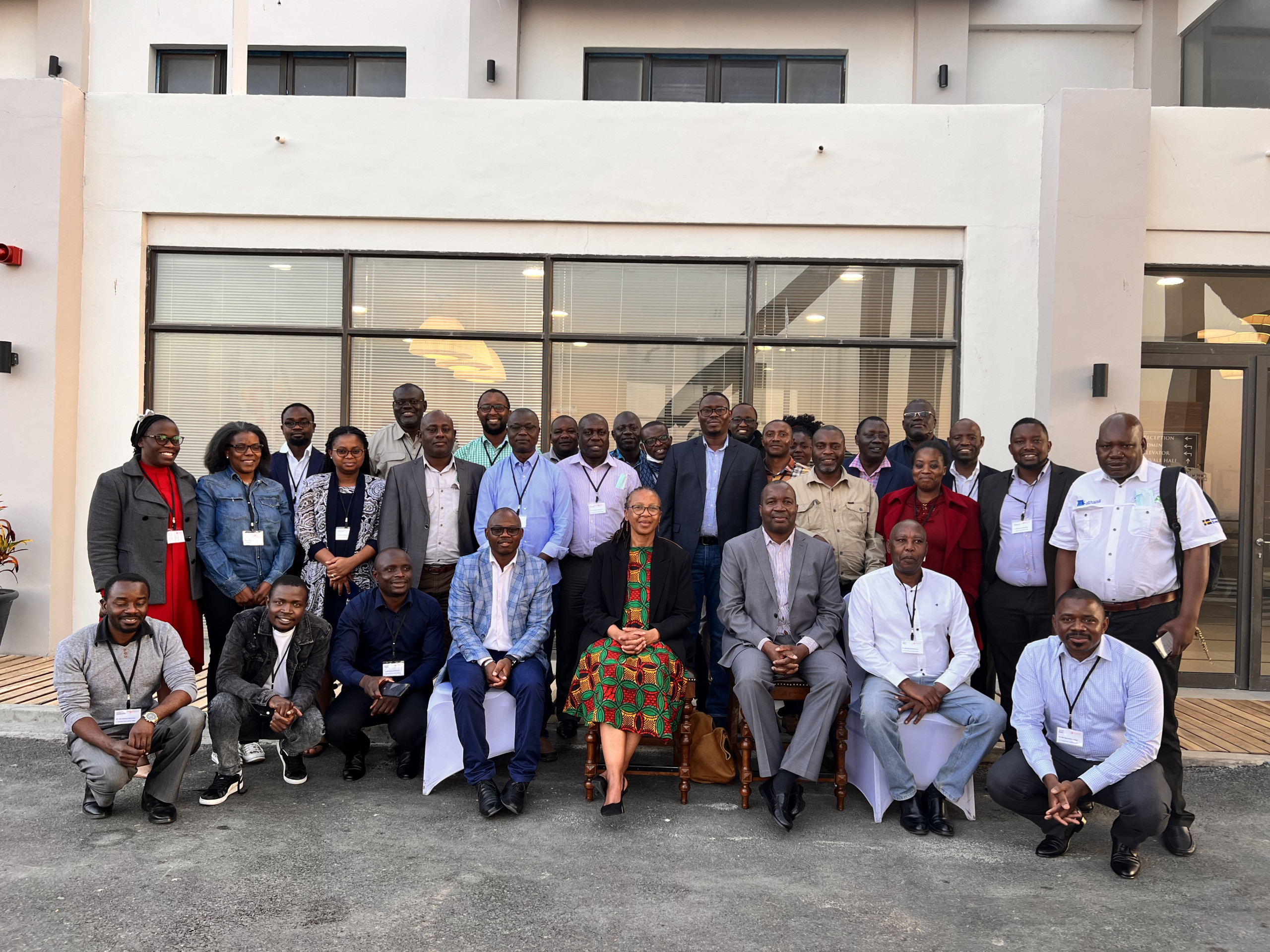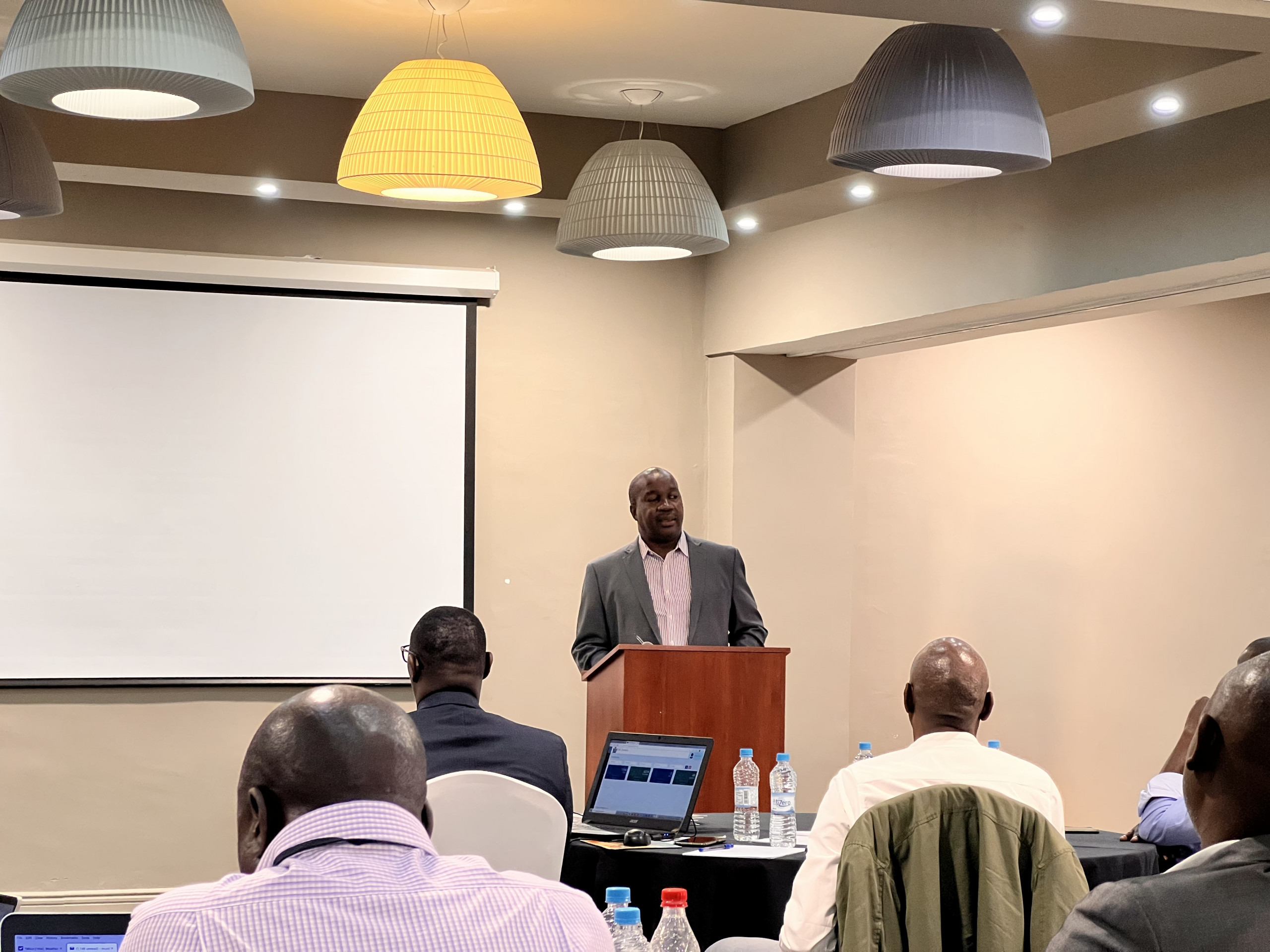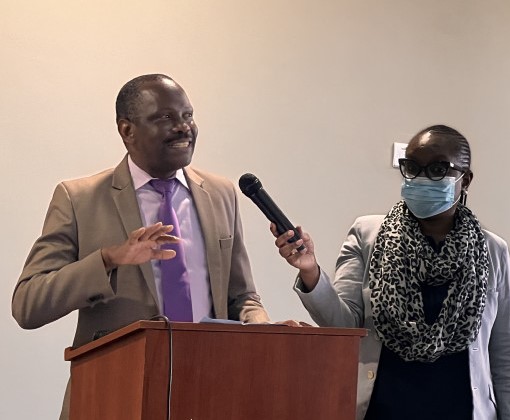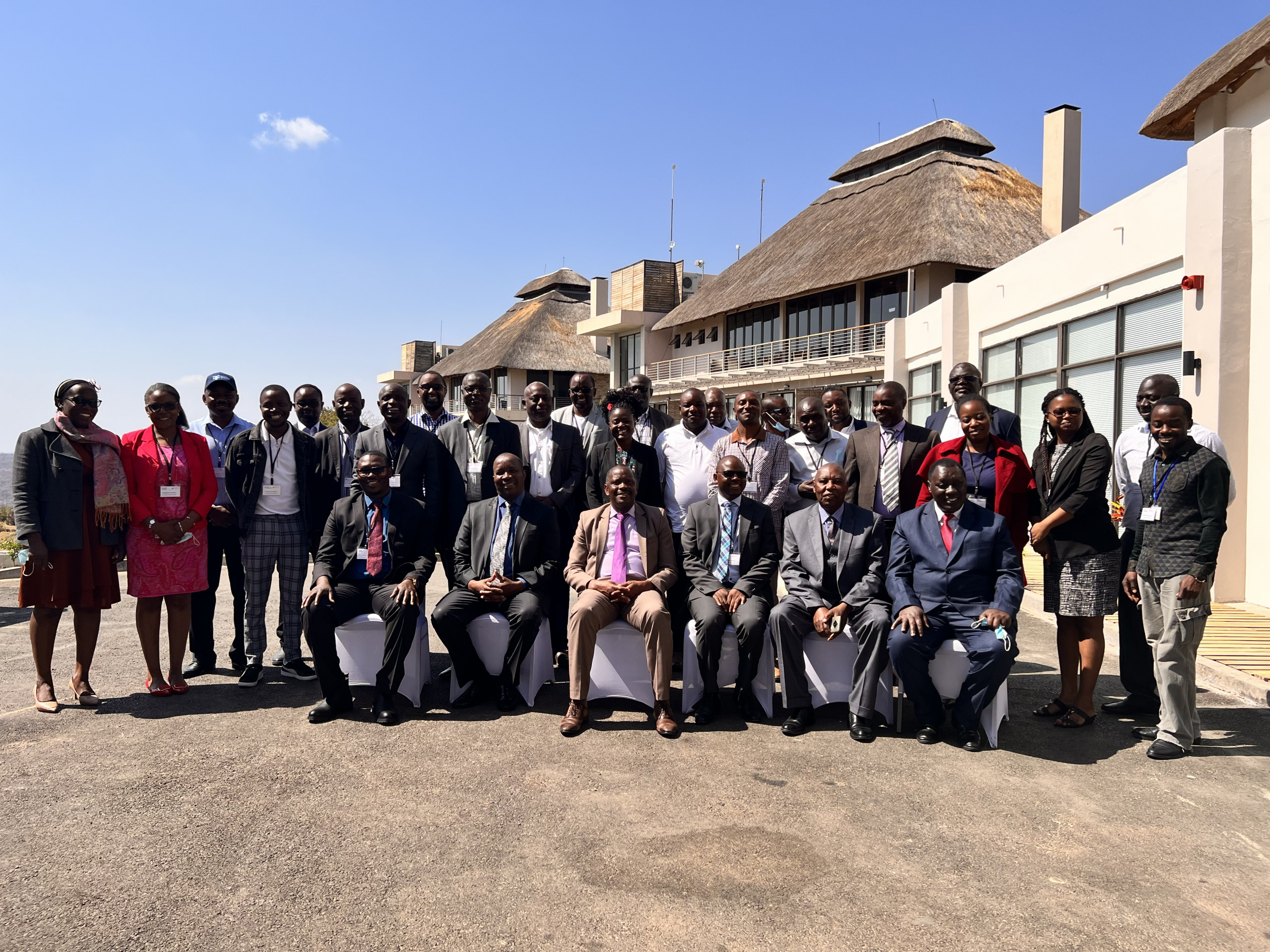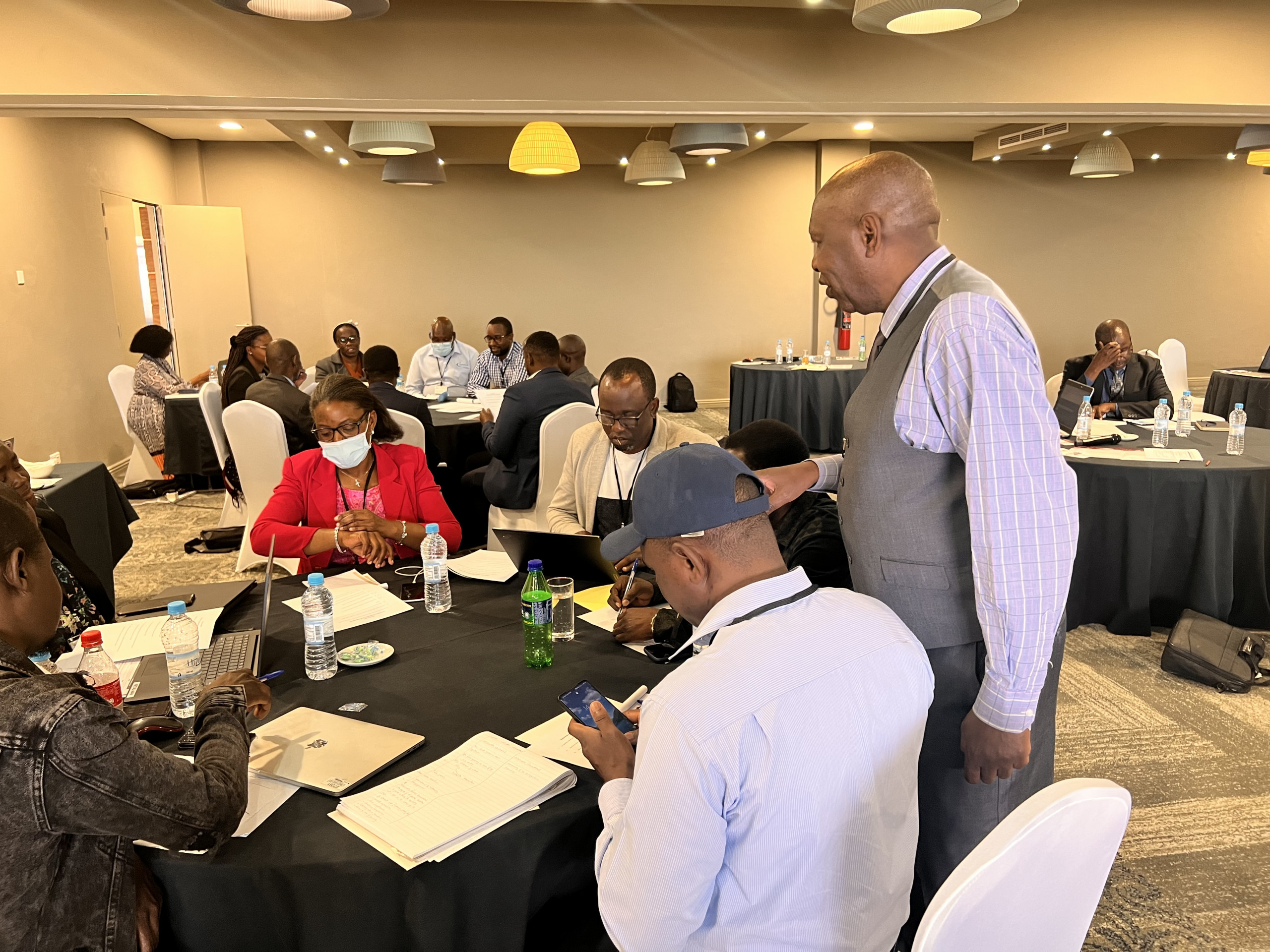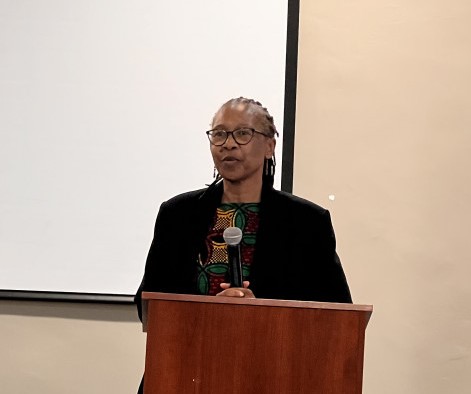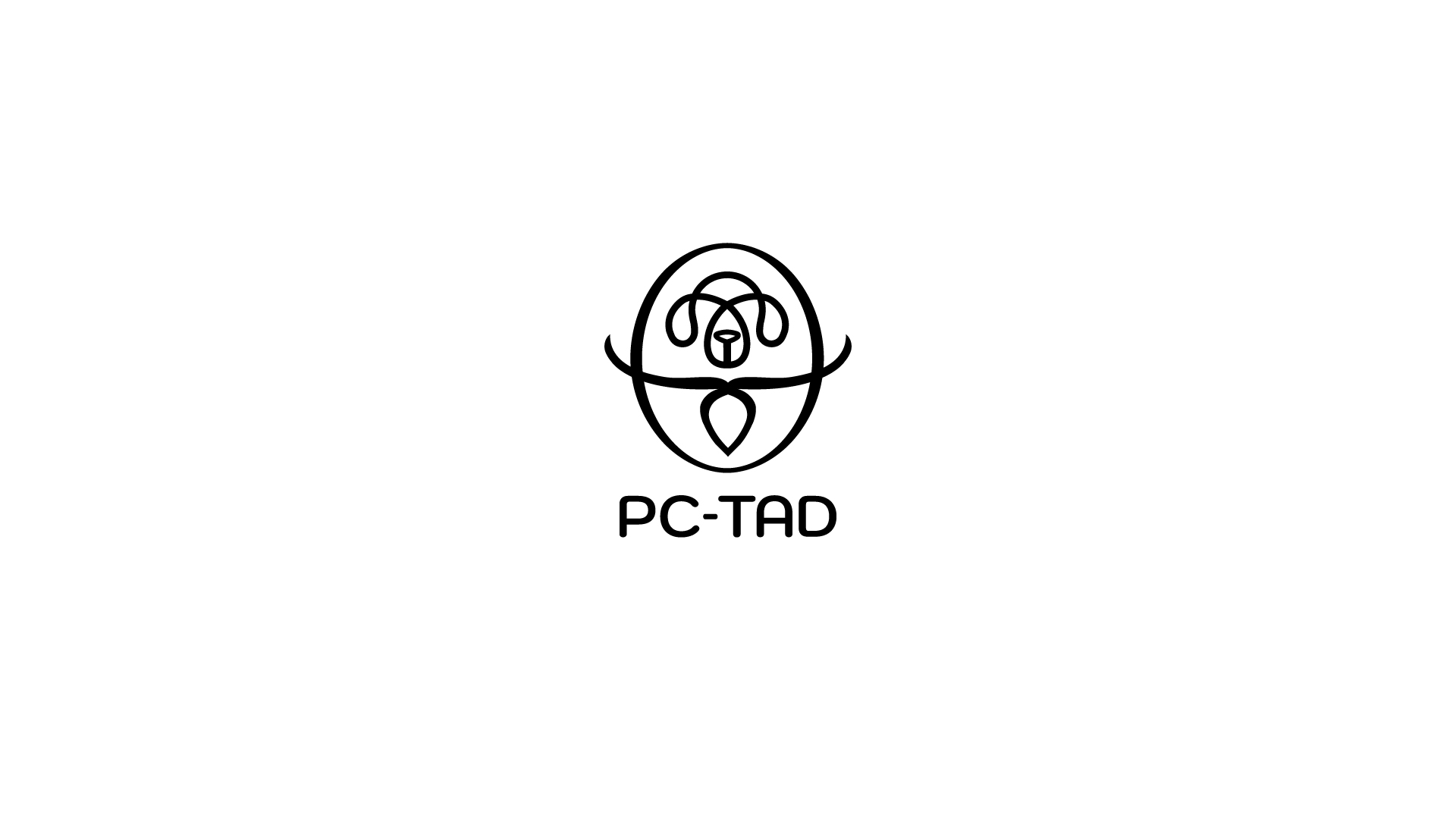
The World Organisation for Animal Health (WOAH) in collaboration with the Government of Zambia organised a stakeholder workshop for veterinarians, veterinary paraprofessionals (VPPs) and industry, to raise awareness on the critical contribution of veterinary workforce in Zambia. In most developing countries in Africa, VPPs serve the majority of rural communities who are in dire need of an accessible and affordable animal health and welfare services.
VPP workforce development is a key part of the “Prevention and Control of Transboundary Animal Diseases for the benefit of smallholder farmers” (PCTAD) project, recently launched by the World Organisation for Animal Health in Eastern and Southern Africa, in collaboration with Veterinary Services and funded by the German Ministry for Economic Cooperation and Development (BMZ). The project entails support to Members to develop their VPP workforce to ensure that VPPs are trained and equipped to provide quality veterinary service provision to rural and smallholder farmers. There is also a strong focus to enable the control and eradication of Peste des petits ruminants (PPR), a disease which affects small ruminants and has severe socio-economic impacts on the income of livestock farmers, particularly vulnerable rural communities.
Dr. Moetapele Letshwenyo. Picture (c) L. Iyadi (WOAH ) 2022.
Dr Moetapele Letshwenyo, the Sub-Regional Representative for Southern Africa of the World Organisation for Animal health, during his speech, highlighted to the participants the Terrestrial Code articles that are of critical importance to veterinary services in regard to global and national health security, food security and food safety, agricultural and rural development, poverty alleviation, safe national and international trade, wildlife health and environmental protection.
He added that many countries lack the financial resources, training capacity and economic opportunities to produce, deploy and sustain sufficient numbers of veterinarians in the field. Hence the importance of including veterinary paraprofessionals in the overall veterinary workforce. Furthermore, historically VPPs were instrumental in disease control and eradication, such as the eradication of rinderpest.
To achieve these goals, Veterinary Services require good governance, including effective policy and management, personnel (veterinarians and VPPs), resources, and close interaction with stakeholders in a One-Health approach.
Hon. Makozo Chikote, Minister of Fisheries and Livestock - Zambia
Hon. Makozo Chikote giving his opening remarks during the workshop. Picture (c) L. Iyadi (WOAH ) 2022.
In his opening remarks, Honorable Makozo Chikote, Minister of Fisheries and Livestock in Zambia recognised the importance of engaging the mixed pool of veterinarians, veterinary paraprofessionals and community-based animal health workers (CAHWs) to help achieve and maximise performance of veterinary services delivery against the existing constraints.
“Once we put better strategies in place and collaborate together with other stakeholders in private sector, we will lift up the livestock economy and smallholder farmers” he added
The 2-day workshop brought together close to 35 participants from both public and private sector in Zambia. They engaged in intense discussions that helped to map out the gaps within the workforce as well as reviewed opportunities on how they can progress to develop and strengthen the current workforce through Private Public Partnership (PPP) engagement activities and interlinkages, information sharing and exchange, dissemination of the skills acquired from these training to other VPPs in their various regions.
The WOAH Delegate for Zambia, Dr Geoffrey Muuka, his Deputies and Focal Points, as well as WOAH technical experts (facilitators) on VPP were also in attendance.
Dr. Simon Kihu (WOAH) engaging participants during group discussions. Picture (c) L. Iyadi (WOAH ) 2022.
Hon. Dr. Annah Songolo addressing participants before closing the workshop. Picture (c) L. Iyadi (WOAH) 2022.
Dr Simon Kihu, Programme Officer for the Project on the Prevention and Control of Transboundary Animal Diseases (PC-TADs), during his presentation, expanded on the importance of the Project and how the World Organisation for Animal Health support to countries like Zambia can steer the Project by addressing gaps identified during the workshop.
The workshop was also graced by Dr Annah Songolo, Permanent Secretary, Ministry of Fisheries and Livestock, who officiated at the closing of the workshop, encouraging veterinarians and VPPs to work together in order to enhance and strengthen the workforce service for the betterment of Zambia’s workforce capacity.
